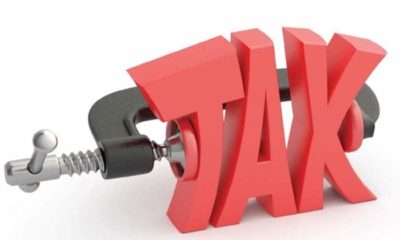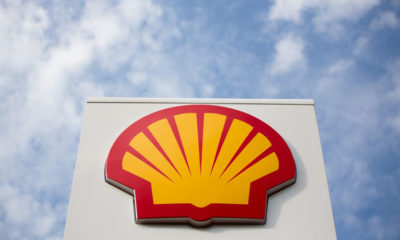The Lagos Chamber of Commerce and Industry (LCCI) and Nigeria Labour Congress (NLC) reject the federal government’s newly imposed excise duty of N10 per liter on all Non-alcoholic, carbonated and sweetened Beverages.
Excise duty is a tax imposed on the manufacture, sale, or consumption of some selected products such as alcoholic drinks, tobacco and petroleum products. it is an indirect tax, causing the manufacturers or producer to recover their loss by raising the price of their goods.
At the public presentation of the approved 2022 FGN budget last week, the minister of Finance, Budget and National Planning, Mrs. Zainab Ahmed said, “there is now Excise Duty of N10 per liter imposed on all non-alcoholic, carbonated and sweetened beverages. This is to discourage excessive consumption of sugar in beverages which contributes to diabetes, obesity, etc.
“The new ‘Sugar Tax’ introduced is also to raise excise duties and revenues for health-related and other critical expenditures. It is in line with the 2022 budget priorities.”
This new development was not welcomed by LCCI and NLC, the two bodies request the government to reconsider its decision as this newly imposed excise duty will have an adverse effect on the economy. Reminding the federal government of the two giant tyre manufacturing companies, Dunlop and Michelin, which were forced to relocate to neighboring countries as a result of epileptic power supply that dragged on their cost of production.
It is believed that a similar situation might play out, resulting in the relocation of non-alcoholic and carbonated companies to neighbouring countries.
In a statement released last week, the Director-General of LCCI, Chinyere Almona, said the newly imposed excise duty on carbonated and non-alcoholic drinks would have a ripple effect on the demand and prices of affected commodities which will affect domestic producers and in turn result in job loss dues to the potential reduction in production activities.
Chinyere said, “the federal government has announced it will charge an excise levy of N10 per litre on all non-alcoholic carbonated sweetened beverages to discourage excessive sugar consumption and boost revenue.”
“The immediate concerns are the likely increase in prices which may lead to a decrease in demand and, consequently, loss of jobs due to a reduction in production activities.
“The prohibition on imported drinks should be better enforced to protect domestic production from unfair competition in the face of the high cost of production in Nigeria.”
This policy will increase the price of carbonated drinks across the country and “impose immense hardship on ordinary Nigerians who easily keep hunger at bay with a bottle of soft drink and maybe a loaf of bread.”
Speaking further, the LCCI recommended an upward review of the budget allocation to the country’s health sector.
“We, however, recommend that the realized revenue from these levies be channeled into improving the country’s grossly inadequate health infrastructure. The allocation to the health sector in the 2022 federal budget of N463bn should be reviewed upward to the region of a trillion naira invested into the sector in the next ten years.
“And beyond the levying of taxes on carbonated drinks to force a reduction in consumption, we urge the various public health agencies to regulate the production of sugary drinks to reduce their negative effect on human health.” The chamber said.
According to Chinyere, adopting the new excise duty is inevitable if the federal government insists to enforce the new “sugar tax”. She said, “If the President insists he wants it, we have to oblige him,” she said.
In a statement released by NLC and signed by Comrade Ayuba Wabba, the union said its concern about the newly imposed excise tax is the mass hunger that would result from the potential increase in the retail price of soft drinks which will be beyond the reach of many Nigerians.
The union further explained that the increase in the price of non-alcoholic and carbonated drinks would push some Nigerians to resort to consumption of substandard and unhygienic drinks as substitutes for carbonated drinks which will put them at risk of serious health challenges.
If this happens, it will negate the federal government’s objective to discourage over-consumption of sugar and check obesity.
NLC full statement:
On the 31st of December 2021, President Muhammadu Buhari signed into law the Finance Act. Some of the provisions of the Finance Act include the imposition of excise duties on locally produced non-alcoholic, carbonated, and sugary drinks.
The reason offered by the government for this decision was to discourage the consumption of sugar by Nigerians as it has led to an upsurge in obesity and diabetes. In a letter dated 27th November 2021, the Nigeria Labour Congress wrote to the President and Commander-in-Chief of the Armed Forces of Nigeria, President Muhammadu Buhari, GCFR and the leadership of the two chambers of the National Assembly pleading that government should suspend the implementation of the excise duties on non-alcoholic, carbonated and sugary drinks.
The Congress provided a number of very cogent reasons why the government should not go ahead with the decision to impose fresh taxes on soft drinks. One of the reasons we advanced was that the re-introduction of excise duties on non-alcoholic, carbonated and sugary drinks will impose immense hardship on ordinary Nigerians who easily keep hunger at bay with a bottle of soft drink and maybe a loaf of bread.
Our concern is the mass hunger that would result from the slightest increase in the retail price of soft drinks owing to the imposition of excise duties as it would be priced beyond the reach of many Nigerians. Congress was also alerted by the complaint of manufacturers of soft drinks in Nigeria that the re-introduction of excise duties would lead to a very sharp decline in sales, forced reduction in production capacity, and a certain roll back in investments with the certainty of job losses and possibly shut down of manufacturing plants.
Nigerians would recall that this was also the complaint of tyre manufacturing companies such as Dunlop and Michelin which was overlooked by the government until the two companies relocated to neighboring Ghana. A similar situation is playing out with the soft drinks manufacturing sub-sector. Government should pay attention.
With 38% of the entire manufacturing output in Nigeria and 22.5% share representation of the entire manufacturing sector in Nigeria, the food and beverage industry is the largest industrial sub-sector in our country. The food and beverage sub-sector has generated to the coffers of government N202 billion as VAT in the past five years, N7.3 billion as Corporate Social Responsibility and has created 1.5 million decent jobs both directly and indirectly.
There is thus no gainsaying the fact that the industry is a golden goose that must be kept alive. The health reason proffered by the government as a reason for the reintroduction of the excise duties seems altruistic. Yet, we are amiss why the government did not place the excise duties on sugar itself as a commodity rather than on carbonated drinks.
The truth of the matter is that an additional increase in the retail price of carbonated drinks would put more Nigerians at risk of serious health challenges as many people would resort to consuming sub-standard and unhygienic drinks as substitutes for carbonated drinks.
The appeal to rescind the re-introduction of excise duties on non-alcoholic drinks becomes even more compelling when the projected immediate revenue expected from the policy is weighed against the potential long-term loss to both manufacturers and the government. The beverage sub-sector will lose 40% of its current sales revenue.
This translates to a loss of N1.9 trillion. While the government will only make total projected receipts of N81 billion from the proposed reintroduction of the excise duties. The government also stands to lose N197 billion in VAT, Company Income Tax and Tertiary Education Tax as a consequence of the expected downturn in overall industry performance should the excise duties be effected as being planned.
In light of the foregoing, we ask the National Assembly to quickly amend the sections of the Finance Act that re-introduced excise duties on non-alcoholic and carbonated drinks. We also ask the government to extend COVID-19 palliatives and support incentives to the Food and Beverages industry to cushion the shock and hemorrhage that the industry is trying to recover from.
Finally, we demand that Government should engage Employers in the subsector and Organized Labour in sincere discussions on other options that can deliver a mutually satisfying win-win solution to this issue. We hope that the current situation will not be allowed to degenerate into a breakdown in industrial relations in the sector and generally in the country.
Comrade Ayuba Wabba, mni
President
January 2022

 Naira4 weeks ago
Naira4 weeks ago
 Naira4 weeks ago
Naira4 weeks ago
 Travel4 weeks ago
Travel4 weeks ago
 Jobs4 weeks ago
Jobs4 weeks ago
 Naira4 weeks ago
Naira4 weeks ago
 Naira3 weeks ago
Naira3 weeks ago
 Investment4 weeks ago
Investment4 weeks ago
 Travel4 weeks ago
Travel4 weeks ago


























